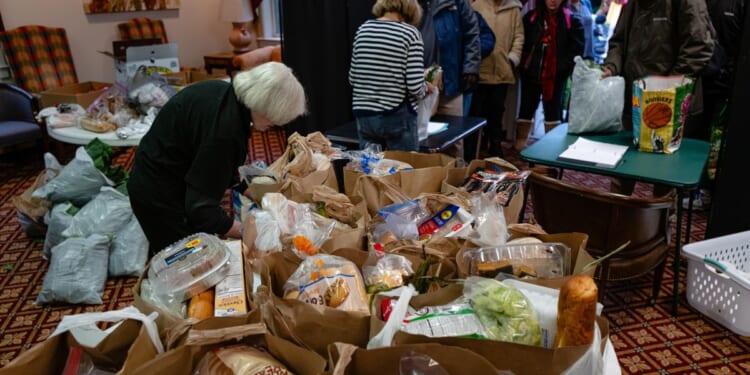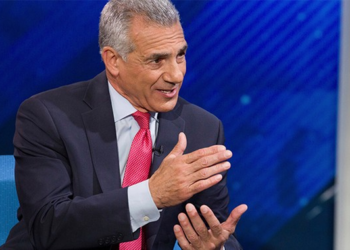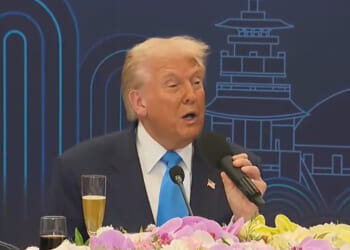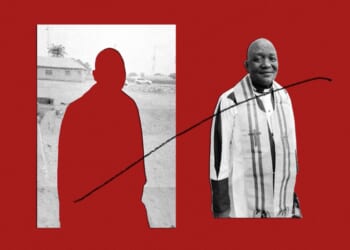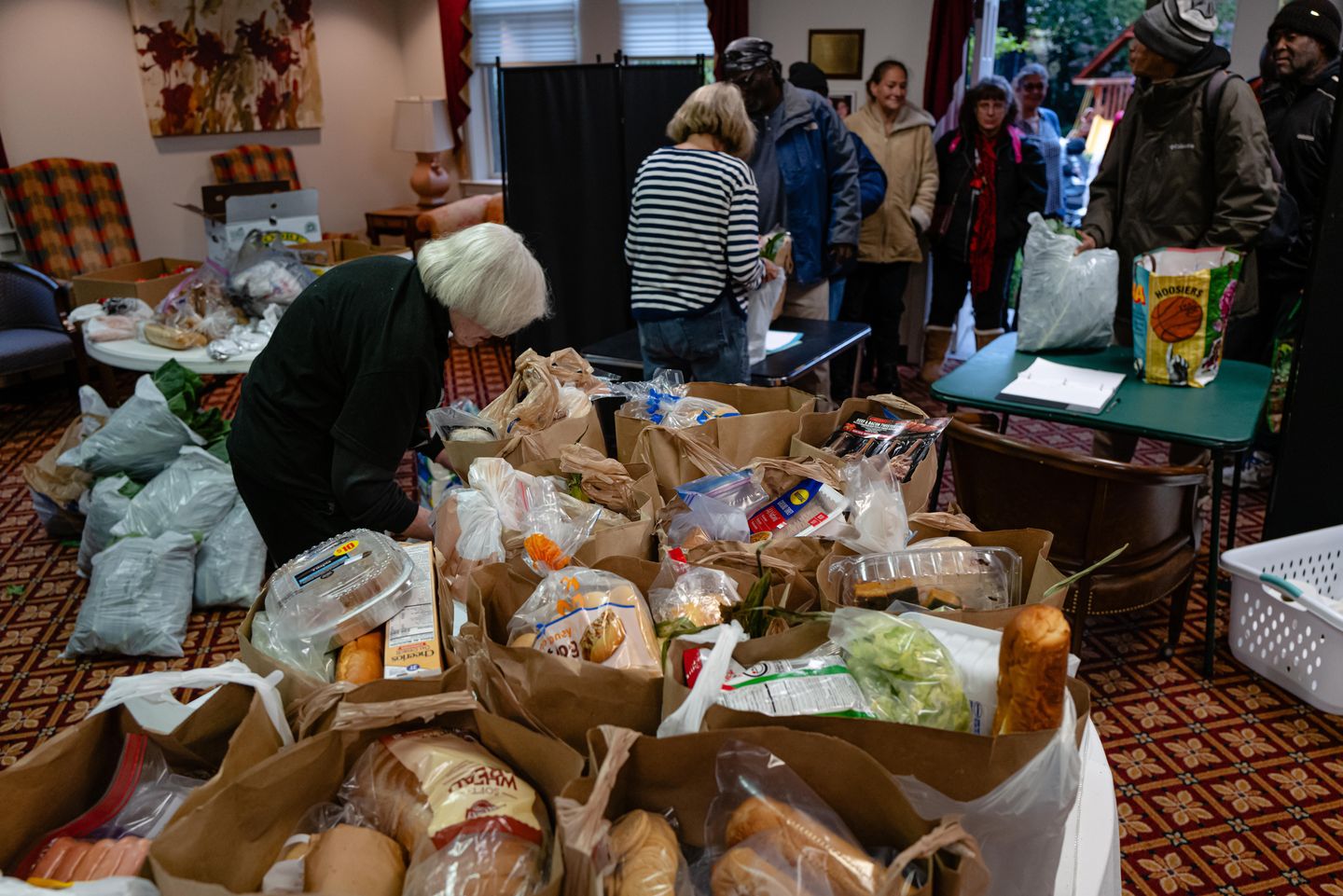
The government shutdown, entering its fifth week, has begun to threaten vital food assistance programs used by tens of millions of Americans, prompting a surge in demand and long lines at food banks nationwide.
The Supplemental Nutrition Assistance Program, commonly known as food stamps, became a flash point after a federal court ordered the Trump administration to back off its plan to halt funding because of the shutdown.
Despite the court order, delays in SNAP payouts, which help low-income Americans buy groceries, are putting millions of poor Americans in a pinch, fueling uncertainty about how they will afford food.
It is a reminder of how the shutdown’s ripple effects continue to mount. Hundreds of thousands of federal workers have missed paychecks, and major airports are grappling with flight delays and cancellations because of staffing shortages.
President Trump and congressional Republicans have pinned the blame on Senate Democrats, who are filibustering a House-passed stopgap bill to fund the government through Nov. 21.
Democrats are demanding an extension of enhanced Obamacare premium subsidies that help people afford health insurance and are set to expire at the end of the year.
SEE ALSO: Democrats accuse Trump admin, GOP of weaponizing hunger amid legal battle over SNAP benefits
They also want a reversal of the Medicaid spending cuts included in Mr. Trump’s One Big Beautiful Bill Act.
Pressure on Democrats intensified last week when the American Federation of Government Employees, representing hundreds of thousands of unpaid federal workers, endorsed the Republican funding measure.
Meanwhile, the legal battle over SNAP escalated as 25 states and the District of Columbia sued the administration. They argued that the government could tap into contingency funds to keep the program running.
The Department of Agriculture planned to freeze payments from funds needed to cover the cost of the food program starting Saturday. The agency said it could no longer continue funding it because of the shutdown.
On Friday, two federal judges simultaneously ordered the administration to make the payments with contingency funds.
U.S. District Judge John J. McConnell in Rhode Island gave the administration until Monday to detail its plan for funding SNAP.
“There is no question that the congressionally approved contingency funds must be used now because of the shutdown,” Judge McConnell wrote in his order.
Mr. Trump said he would provide the money but wanted more clarity from the court.
“It will be my honor to provide the funding, just like I did with military and law enforcement pay,” Mr. Trump said on Truth Social.
On Sunday, Treasury Secretary Scott Bessent said the “courts keep jamming up things.” He reiterated that Mr. Trump “wants to make sure that people get their food benefits.”
House Minority Leader Hakeem Jeffries, New York Democrat, accused Mr. Trump of “weaponizing hunger.”
“It’s very unfortunate that Donald Trump and Republicans have decided to weaponize hunger and withhold SNAP benefits,” Mr. Jeffries said on CNN’s “State of the Union.”
Meanwhile, the public may be souring on Mr. Trump and congressional Republicans.
An NBC News survey found that 52% of voters blame Mr. Trump and congressional Republicans for the shutdown, compared with 42% who fault Democrats. A Washington Post-ABC News-Ipsos poll showed similar results: 45% blaming Republicans and 33% blaming Democrats.
Nearly 6 in 10 voters disapproved of the president’s overall job performance, including his handling of the economy, tariffs and overall management of the government.
The political fallout could be evident in the gubernatorial elections in Virginia and New Jersey on Tuesday. Off-year contests are often considered early indicators of national sentiment, though they frequently go against the party that holds the White House, especially in Virginia.
Democrats lead in both races and hope to rebound after a disappointing 2024 election cycle.
Voters in California are weighing in on a new set of congressional maps, backed by Gov. Gavin Newsom and other state Democrats.
The maps are intended to create more Democratic-friendly districts and bypass the state’s nonpartisan commission, which was established specifically to prevent partisan gerrymandering.
The map is California Democrats’ answer to the Trump-inspired redistricting efforts in Republican-led states that aim to give Republicans a better shot of maintaining their slim House majority after the midterm elections next year.
During an appearance on NBC’s “Meet the Press,” Mr. Newsom predicted a big night for Democrats.
“This is a historically unpopular president,” Mr. Newsom said. “His policies are even more unpopular than the president himself.”
He added, “In every core category, he’s underwater.”
House Speaker Mike Johnson, Louisiana Republican, painted a different picture on “Fox News Sunday.”
Dismissing the idea that the public is turning against Republicans, Mr. Johnson cited a recent CNN survey that found the Republican brand has improved in voters’ eyes during the shutdown.
“This is not about winning a political contest here. Real people are losing; the American people are hurting,” Mr. Johnson said. “Democrats have voted 14 times now to keep the government closed. 14 times.”
• This article is based in part on wire service reports.

